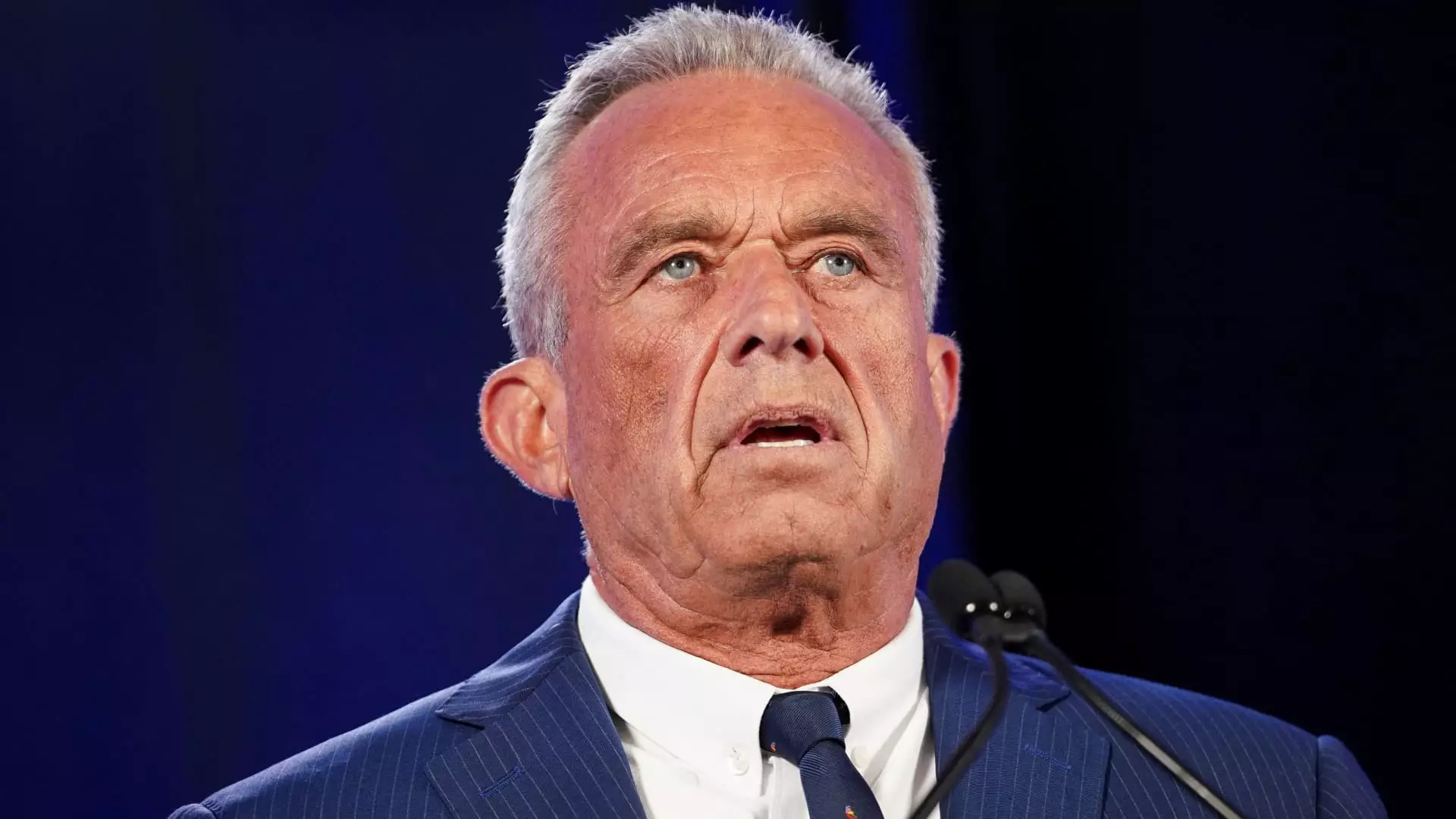In a pivotal decision made by the Michigan Supreme Court, former independent presidential candidate Robert F. Kennedy Jr. will remain on the state’s ballot for the upcoming presidential election. This ruling not only provides Kennedy with a platform but also carries significant ramifications for the electoral dynamics in Michigan, particularly affecting Vice President Kamala Harris’s campaign against former President Donald Trump.
Kennedy’s bid to withdraw from the ballot arose from his earlier suspension of his independent campaign, where he aligned himself with Trump for strategic purposes. By stating his intention to withdraw his name from ballots in swing states where it might detract votes from Trump, Kennedy initiated a complicated legal battle against Michigan Secretary of State Jocelyn Benson. The legal basis for Benson’s refusal hinged on existing state laws that prevent minor party candidates from withdrawing their candidacies after accepting a nomination.
The Michigan Supreme Court’s majority ruling underscored that Kennedy failed to present legal justification for his withdrawal, emphasizing that the law does not provide the mechanism he sought. The unsigned majority opinion suggests that five out of seven justices were aligned in their decision, indicating a lack of clear consensus or dissent among the court members. This leads to questions about the potential political motivations behind the ruling, given that the electoral outcome in Michigan is critical.
Political Ramifications for the Presidential Election
The implications of maintaining Kennedy on the ballot are profound. In the context of polling averages, Harris maintains an edge over Trump in Michigan, yet this lead diminishes significantly in direct head-to-head matchups. This nuance is critical; with Kennedy remaining a candidate, he could siphon potential votes from either side, making the election results unpredictable.
Kennedy’s presence could disrupt the vote distribution, effectively altering the race’s dynamics. The existence of a third-party candidate has historically complicated the electoral calculus, particularly in battleground states that can influence the overall outcome of the Electoral College. Michigan’s 15 electoral votes represent a key prize, reinforcing the notion that every vote counts, especially in states where the margins are razor-thin.
The dissenting justices of the Michigan Supreme Court highlighted broader implications, expressing concern that the ruling could set a troubling precedent for state-level elections. They argued that denying voters the opportunity to choose from actual candidates undermines democratic principles. Their dissent suggests a fear that the ruling may embolden similar actions in other states, which could ultimately disenfranchise voters by restricting their choice between genuine candidates.
Furthermore, Kennedy’s legal battles extend beyond Michigan, with similar situations unfolding in Wisconsin and North Carolina, where he is also contesting his placement on the ballot. While a North Carolina court temporarily ruled in his favor, the legal landscape remains fraught with uncertainty. The implications are even more pronounced when considering that these battleground states will likely be critical in determining the presidential race outcome.
The Road Ahead: A Complex Political Landscape
As the election approaches, the evolving situation with Kenneth may define the strategies deployed by both the Harris and Trump campaigns. Each candidate must consider how Kennedy’s presence alters their approach to voter outreach and campaign messaging. If Kennedy draws more support away from Harris, it could bolster Trump’s chances in what are considered swing states.
Moreover, Kennedy’s significance as a candidate highlights a growing desire among voters for alternatives to the traditional two-party system. Whether his campaign will galvanize enough support to affect the election meaningfully remains to be seen, but it undeniably introduces new variables into an already complex political landscape.
The Michigan Supreme Court’s decision to keep Robert F. Kennedy Jr. on the ballot presents a multifaceted challenge for candidates and voters alike. It raises essential questions about voter choice, party dynamics, and the very essence of the electoral process, ensuring that this election will be one to watch closely.


Leave a Reply